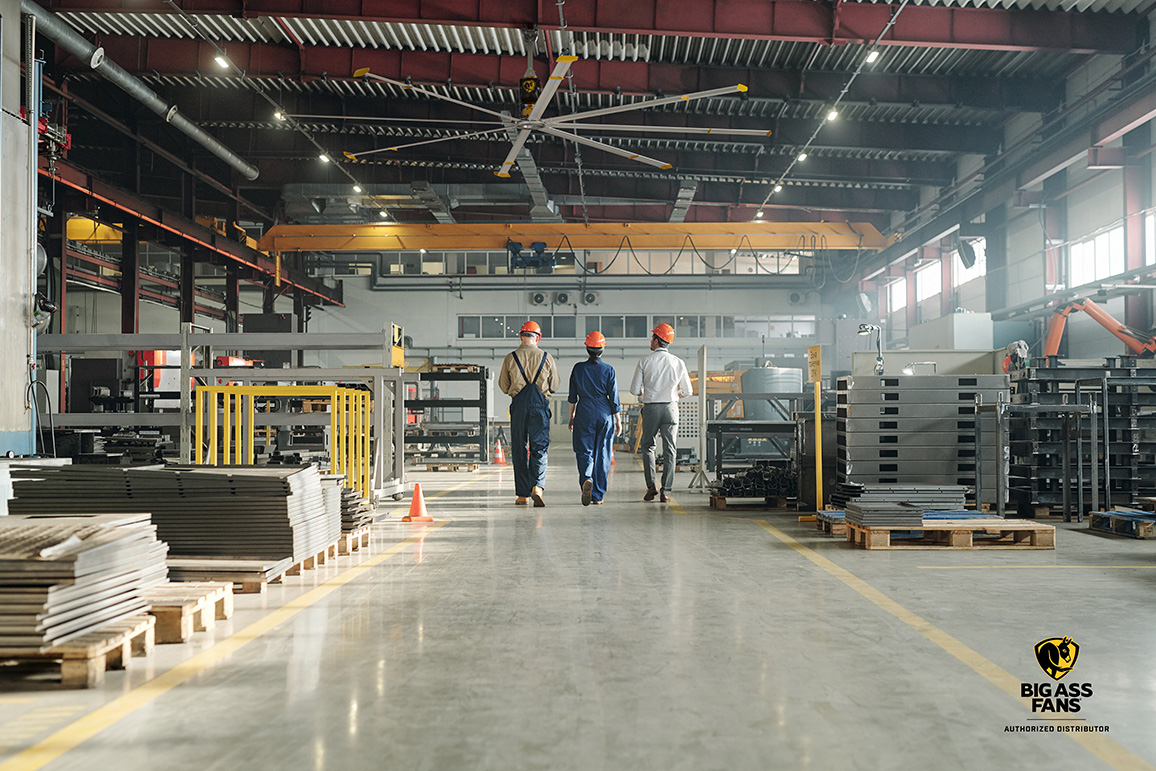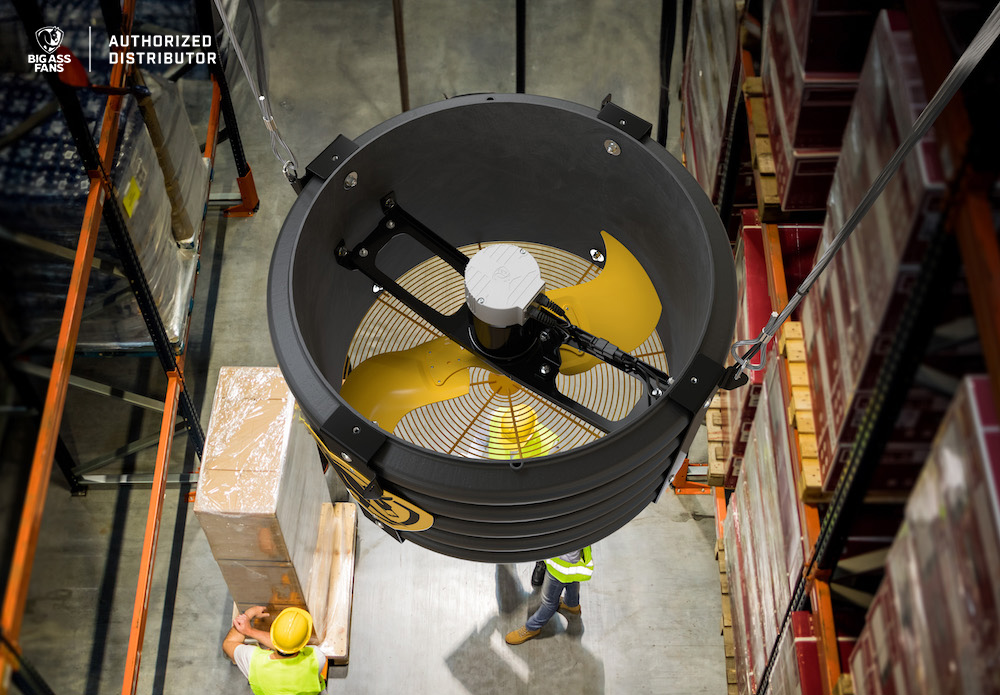As New Zealand transitions into spring and summer, the country anticipates a period of warmer temperatures and dynamic weather patterns. Businesses, particularly those with large indoor spaces like warehouses, are increasingly adopting innovative solutions such as Jet Black Fan Systems' High Volume Low Speed (HVLS) fans to maintain comfortable environments.
Anticipating Warmer Weather
The upcoming seasons in New Zealand are expected to bring a mix of warmer temperatures and variable conditions. The National Institute of Water and Atmospheric Research (NIWA) forecasts temperatures across the country to be near or above average, with fewer frosts expected. This warming trend maybe influenced by the potential development of a La Niña weather pattern, which could lead to more frequent high-pressure systems near the North Island and prevailing westerly winds.
Spring, spanning from September to November, typically sees average daytime temperatures ranging from 16-19°C, with an increased likelihood of spring showers/humidity and gradually increasing daylight hours. As summer approaches, from December to February, average daytime temperatures rise to20-25°C, with warmer conditions in the North Island potentially reaching themid-30s°C. This period may also bring more settled weather patterns.
The Role of HVLS Fans in Workplace Comfort
As temperatures rise, maintaining a comfortable indoor environment becomes crucial for businesses. HVLS fans offer an effective solution for regulating temperatures and improving air circulation in large spaces. These fans provide several key benefits, including;
- Temperature regulation through gentle, quiet cooling on warm days and reversible operation to distribute warm air during colder periods.
- They also aid in humidity control by improving air circulation, especially during rainy periods.
- HVLS fans are energy-efficient, reducing reliance on traditional HVAC systems and offering cost-effective temperature management.
- They enhance air quality by promoting continuous air movement, which helps reduce stagnant air and potential pollutants. Their versatility makes them effective in various large indoor spaces, including warehouses, gymnasiums, and manufacturing facilities.
Maintaining comfortable working conditions is not just about employee comfort; it directly affects productivity, safety, and overall business performance. Uncomfortable working conditions contribute to employee dissatisfaction and higher turnover rates, with the cost of replacing a single warehouse worker potentially reaching up to 40%of their annual salary.
Heat stress increases the likelihood of accidents and injuries, making proper temperature regulation crucial in reducing the risk of heat-related illnesses. Many countries have workplace health and safety regulations regarding temperature and air quality, and HVLS fans can help businesses meet these requirements. Consistent air circulation can also help protect sensitive equipment and inventory from temperature fluctuations and humidity. Moreover, HVLS fans can reduce reliance on air conditioning systems, leading to significant energy cost savings.
These fans provide several benefits:
To effectively prepare for the upcoming seasons, businesses should consider several strategies.
1. Conducting a thermal comfort assessment can help evaluate current indoor climate conditions and identify areas prone to temperature fluctuations or poor air circulation.
2. Investing in HVLS fan technology involves calculating the appropriate fan size and placement for maximum efficiency and considering integration with existing HVAC systems for optimal performance.
3. Developing a seasonal climate control plan is essential, including creating protocols for adjusting fan speeds and directions based on weather conditions and training staff on proper use of HVLS fans and other climate control equipment.
4. Regular monitoring and adaptation are crucial. Businesses should collect feedback from employees on comfort levels and adjust climate control strategies as needed based on changing weather patterns. Additional measures to consider include implementing proper insulation and sealing to minimise heat transfer and using reflective materials or coatings on roofs and walls to reduce heat absorption.
As New Zealand prepares for warmer spring and summer seasons, businesses can significantly benefit from investing in HVLS fan technology. By creating more comfortable, efficient, and productive environments, companies can better navigate the challenges posed by changing weather patterns. This proactive approach not only ensures a pleasant indoor climate year-round but also contributes to improved employee well-being, increased productivity, and potential cost savings in the long run.
Jet Black Fan Systems have a team who can assist in recommending the optimal placement and installation method when working with HVAC systems. When choosing the premium range of Big Ass Fans, we can offer CFD modelling and provide the required data to your HVAC engineer to ensure the right system is presented for you. Save money in overall investment, followed by operational costs by investing in both HVLS fans and Heating, ventilation and air conditioning systems. Contact us today.
Sign up to our newsletter




